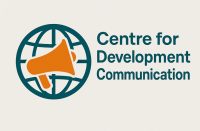Buji Local Government in Jigawa State offers a practical example of how citizen-centred communication can transform governance. By involving residents in discussions on local policies, priorities, and resource allocation, Buji has become a model reference of democracy communication—facilitating participatory governance beyond elections.
What is Democracy Communication? It is a citizen-centred approach to governance that places dialogue, participation, and co-implementation at the heart of policy-making. It goes beyond rhetoric by fostering continuous engagement between state actors and citizens. By clarifying policy intentions, encouraging active participation, and ensuring transparency, democracy communication transforms citizens from passive recipients into co-creators of governance solutions.
Findings From Buji Local Government
The baseline study engaged 21 participants—11 in focus group discussions (five women and six men) and 10 in key informant interviews drawn from community-based organisations, political office holders, women, youth, traditional and religious leaders. Beyond the numbers, the voices of Buji reveal how democracy communication reshaped the governance experience.
From exclusion to inclusion For years, many residents felt that government decisions were made far away from them, with little room for input. Yet 93% of participants said that today, they no longer stand outside the process. Citizens now sit in meetings, ask questions, and negotiate priorities—becoming part of governance, not just its observers.
The turning point of 2013 Nearly half (45%) traced this transformation to 2013, when a visionary local government chairman introduced structured citizen dialogues. For many, it was the first time they were asked: “What matters most to you?” That moment, participants recalled, marked the beginning of a new culture where the people’s voice shaped local decisions.
Understanding roles in governance 77% reported that democracy communication helped them clearly see where government responsibility ends and where community responsibility begins. This clarity turned apathy into action—villagers began to mobilise themselves for local initiatives, while also holding government accountable for its commitments.
Asking the right questions Almost half (46%) said that being part of these dialogues gave them the confidence to demand answers on sensitive issues such as how contracts are awarded, how projects are funded, and how resources are allocated. What was once whispered in corners became openly discussed in town halls.
Trust through transparency Participants emphasised that the practice of breaking down government programmes into simple, accessible language fostered trust. Citizens began to believe that government was not hiding information, but instead inviting them into the process. This shift, they said, reduced suspicion and increased cooperation.
Planning together for sustainability Sixty-three percent said that no project now begins without participatory dialogue. This means boreholes, schools, or roads are no longer imposed; they are discussed, prioritised, and co-owned by the people. As a result, communities not only support development projects but also take responsibility for sustaining them
A Voice From the Community One female participant captured this shift vividly:
“I am a living witness of what began in 2013 in Buji. The former Local Government Chairman introduced citizens-centred dialogue that empowered us to see democracy beyond voting. We now know democracy is not the business of politicians alone.”
Why It Matters Buji’s experience illustrates that democracy communication is not just theory—it is practice. When citizens are treated as partners, not passive recipients, governance becomes more legitimate, institutions grow stronger, and development is sustained.
Buji shows that when communication is participatory, democracy thrives beyond ballots.
— Audu Liberty Oseni
Director, Centre for Development Communication #OseniDevTalks
